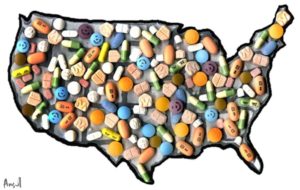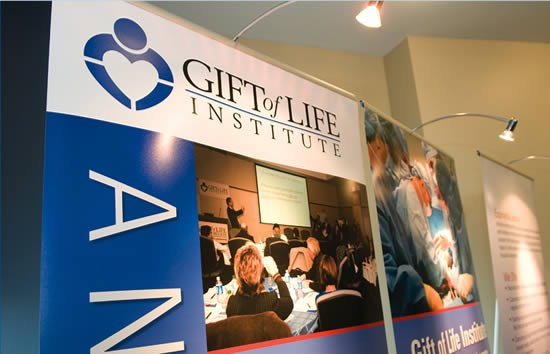The Impact of Increased Opioid Overdose on Donation
While public health agencies struggle to identify measures to curb this rapidly increasing and often fatal trend, donation professionals find themselves more and more frequently faced with overdose victims who have become potential organ donors.
Drug and opioid overdose deaths are on the rise across the country, increasing by approximately 140% since 2000. Significantly contributing to this increase is the usage of natural and semisynthetic opioid pain relievers, heroin, and non-methadone synthetic opioids. 2013 to 2014 saw increases of overdose deaths related to those specified opioids as 9%, 26%, and 80%, respectively. Recommendations to reverse this upward trend of opioid related deaths are: improving safer prescribing methods of prescription opioids; expanding access to and use of antidotes (such as naloxone) and increasing access to medication-assisted treatment combined with behavioral therapies; and collaboration amongst public health agencies, ME/Coroners, and law enforcement agencies to improve detection and responses to identified drug overdose outbreaks.
While public health agencies struggle to identify measures to curb this rapidly increasing and often fatal trend, donation professionals find themselves more and more frequently faced with overdose victims who have become potential organ donors. Families of these victims are emotionally depleted by often years long battles to help their loved ones overcome their addiction, only to find that the battle has culminated in their worst nightmare. All has been lost. There will be no more trips to rehab or late night calls for help. The more we can gain insight into what families have experienced, the better able we become to offer the resources and support each unique family may need. Consider having a parent or spouse of someone who has suffered from drug addiction and died, come in and speak with your staff. Their stories are powerful, and the opportunity for staff to ask questions and learn more about what considerations they should keep in mind when caring for these families are significant. When talking with health care providers who feel drug addiction and overdoses render individuals incapable of offering the gift of life through donation, be sure staff have solid talking points that can help them convey the positive outcomes that can be achieved through donation. Start a conversation among your own staff to be sure everyone has the information they need to communicate effectively in these situations with families and care providers. If you are doing something at your OPO related to the increase in potential donors regarding opioid overdose that could help other professional be more effective in this area, please share; we’d love to have you participate in our blog.
For more information on this growing epidemic, click here.
Patricia Mulvania has more than 30 years’ experience in the healthcare field, beginning her career by providing emergency patient care in the pre-hospital setting. Since, Patricia has served in leadership roles in the emergency department, home-care, and hospice arenas.

